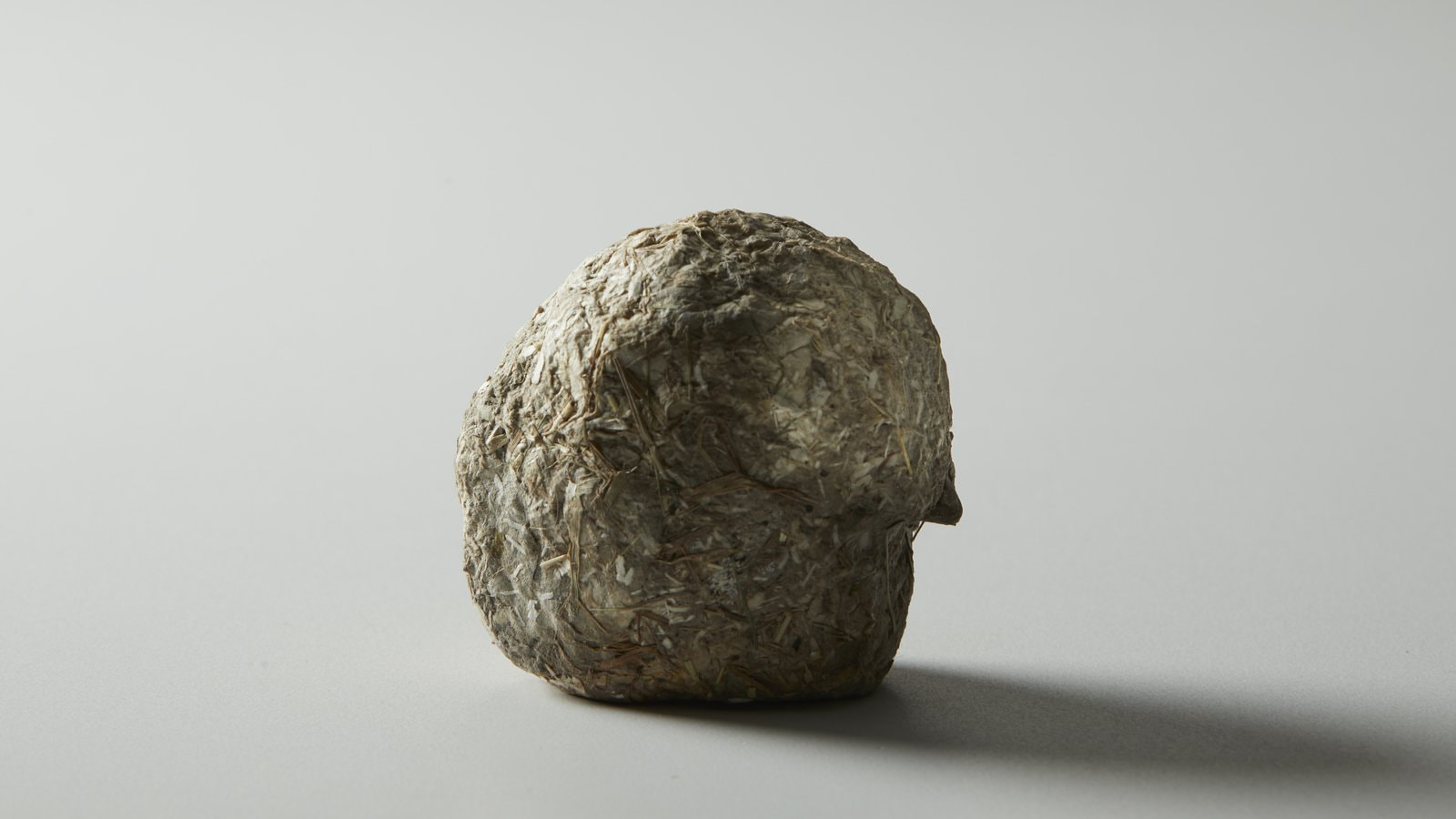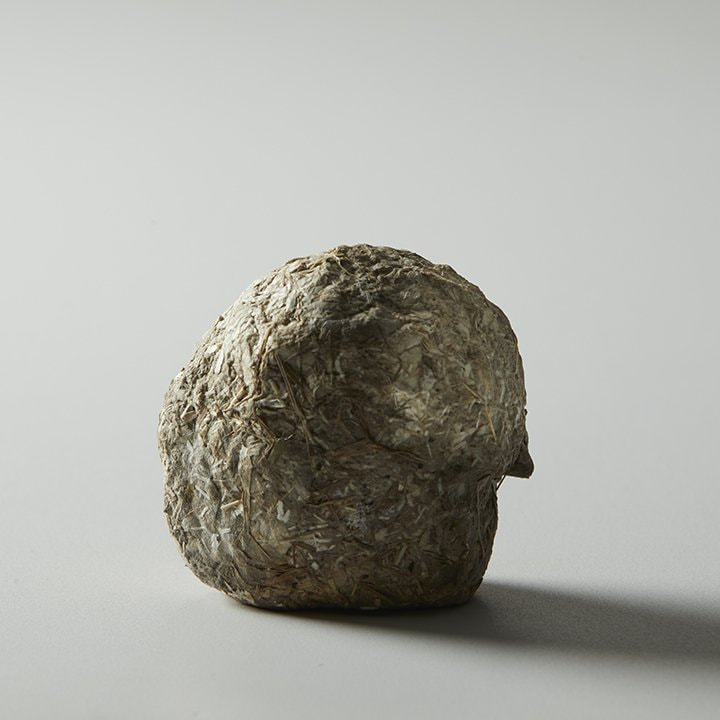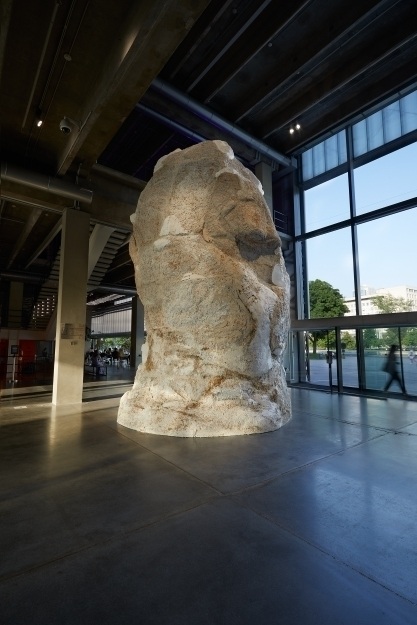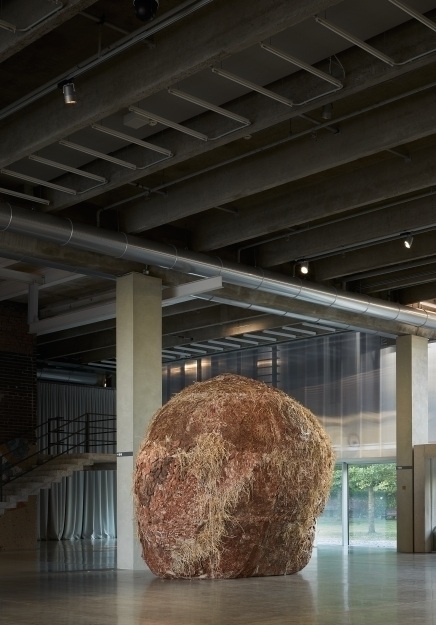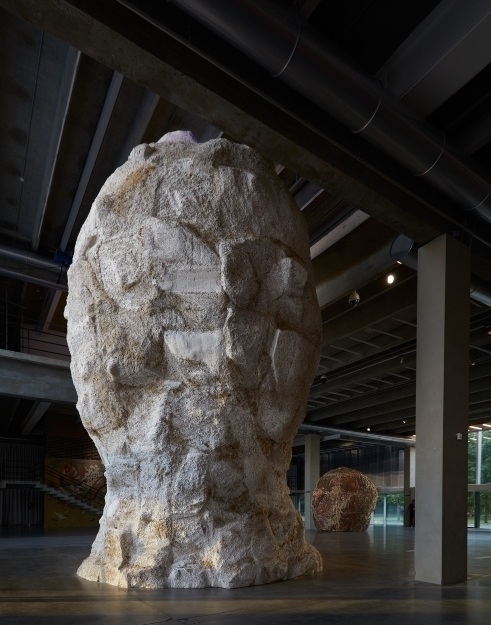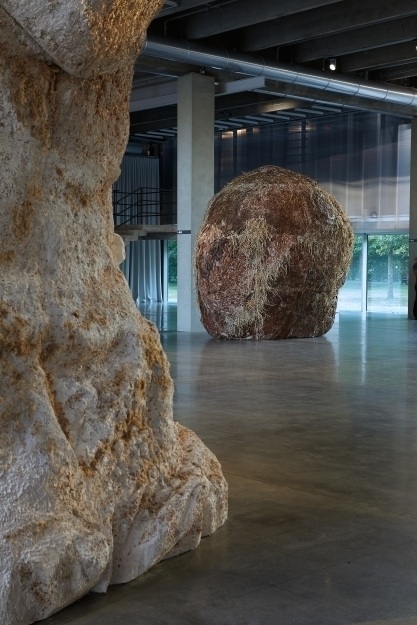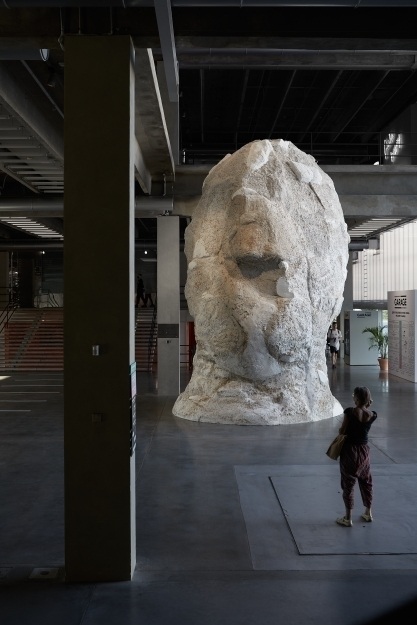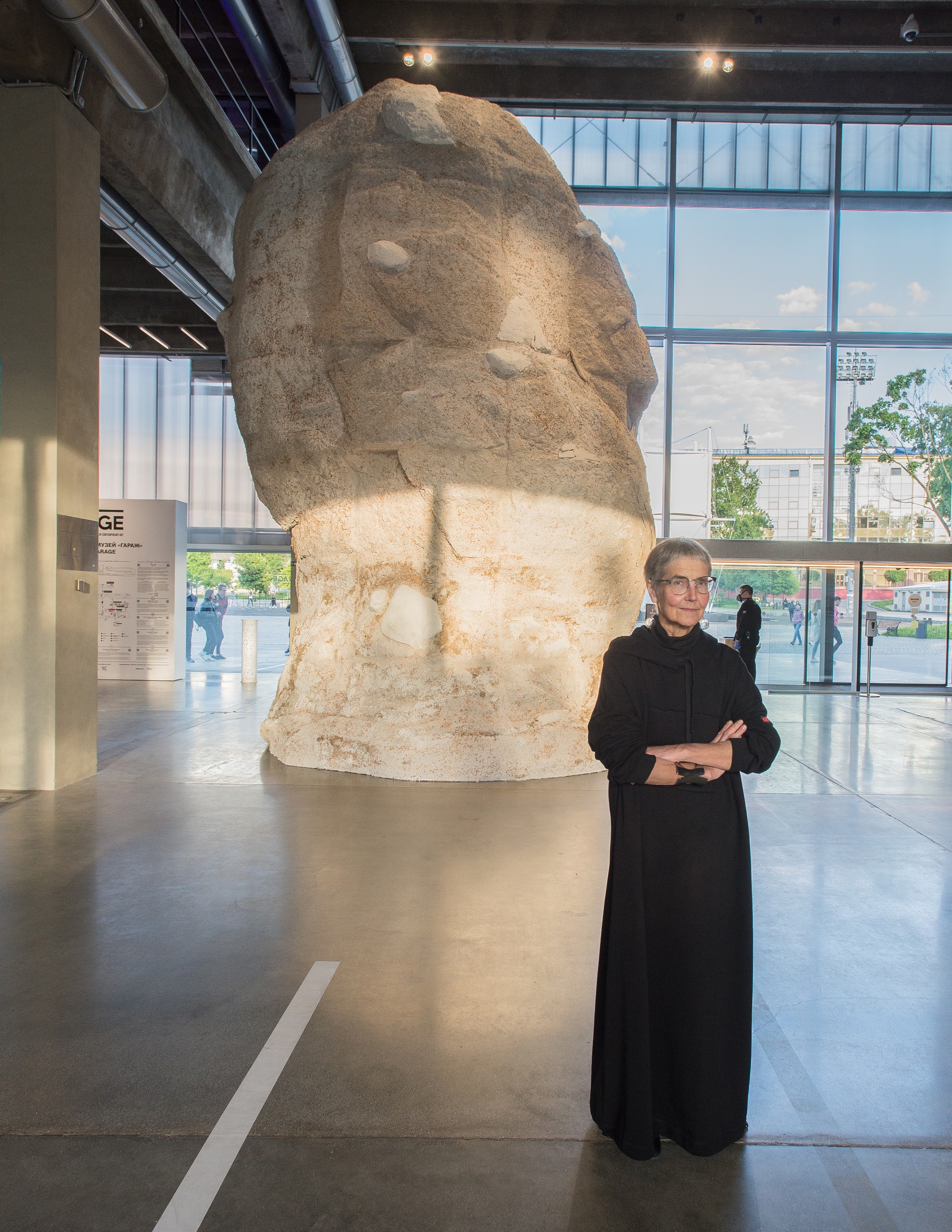The new Garage Atrium Commission presents large-scale sculptures by Natalia Turnova (b. 1957). Throughout her artistic career, Natalia Turnova has remained outside the focus of art professionals and the viewers, escaping narrow definitions and associations with particular contexts, groups, and collectives. Turnova’s practice is subordinate to her individual evolution, and the project for the modernist atrium space at Garage is an unexpected gesture that distracts the viewer from the “usual” Turnova, with her attention to color, large painterly surfaces, and sculptures made of a broad range of materials.
Within the Atrium, the viewer enters a space created by two large heads, the texture of which is reminiscent of natural surfaces. Interconnected fragments of bark, leaves, and rocks create a complex landscape that is a clear contrast to the regular geometry of the modernist space. The heads form what Turnova calls a “connection hub” that links different spaces within the museum. The visitor becomes a witness to (or participant in) the interaction between two anthropomorphic volumes, one seven meters high, the other noticeably smaller and with a seemingly livelier surface of recognisable organic fragments. The relationship between them cannot be limited to a simple definition: big/small, beginning/end, involvement/detachment. Turnova offers a kaleidoscope of interpretations for the visitor to choose from.
Like many other artists—from the American land artists to members of the Japanese-Korean group Mono-ha—Turnova treads the uncertain territory “after the end of art,” where the focus of attention shifts toward natural materials and archaic forms that seem intentionally simplified or reduced. However, being one of the most ironic Russian artists, she compares the cosmogony presented here to the “making of a snowman:” while rolling the spheres, their surface may accumulate the remains of last year’s leaves and soil.
The Egg and the Rock is a free inversion of the attraction to the archaic and the primordial, while also initiating a change in our vision and gravitational and body settings, thus healing both our perception and the museum space as such.
